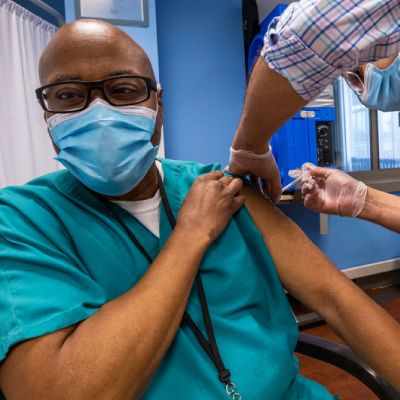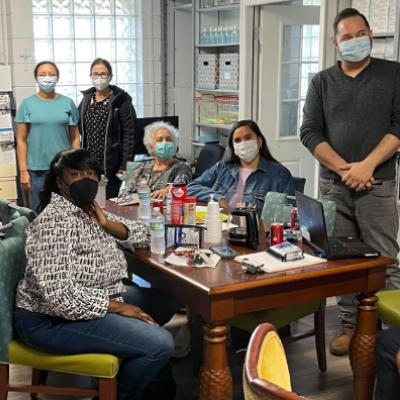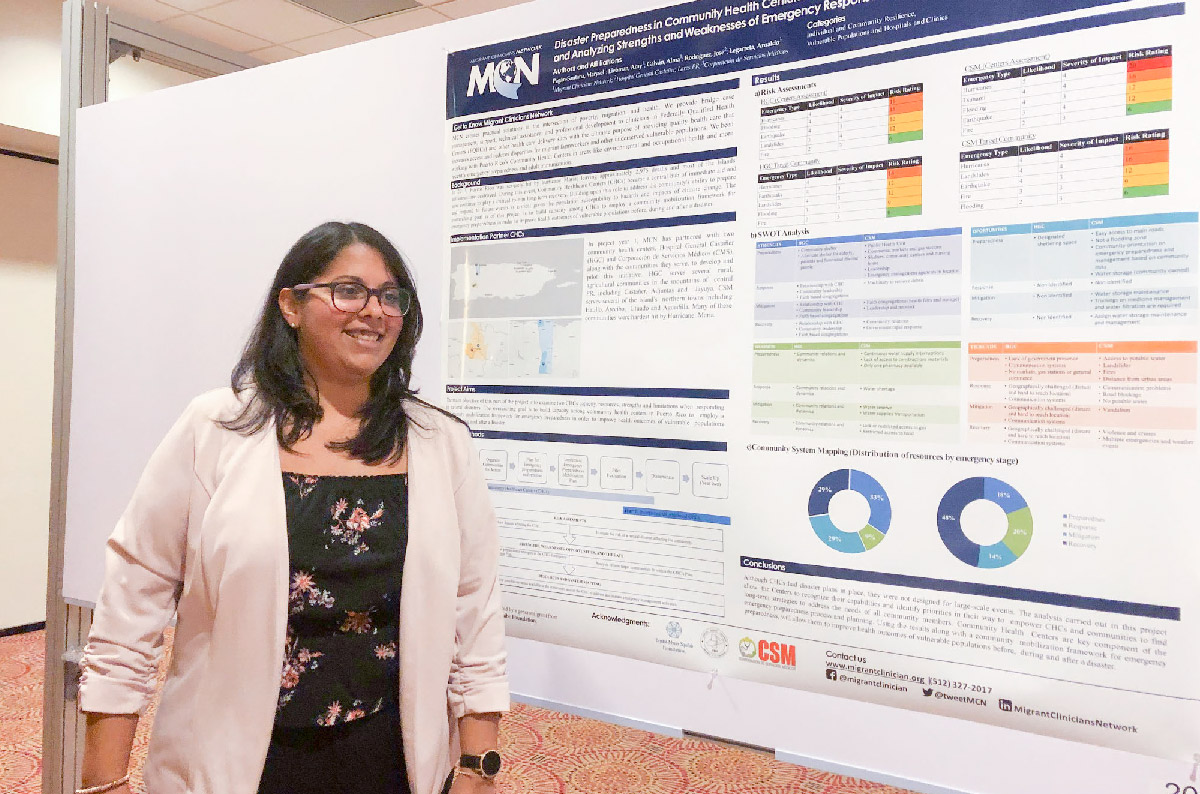- Who We Are
- Clinician Employment
- Publications
- Witness to Witness (W2W)
- Kugel & Zuroweste Health Justice Award
- Your Voice Matters: Photovoice Project
Thu, 03/07/2019 | by Claire Hutkins Seda

By Claire Hutkins Seda, Staff Writer and Editor
The term resilience implies that after a trauma the original condition is regained. After 2017’s Hurricanes Irma and Maria inflicted mass trauma on the island’s residents and flattened infrastructure, Puerto Rico has been called resilient, but, to be clear: the island is not unchanged. It is stronger. In a large part, its newfound strength has come from community leaders reflecting on what worked, and what didn’t, in the midst of tragedy -- in preparation for the next disaster.
“Maria happened, and the government didn’t work. The community had to do it by themselves,” Marysel Pagán Santana, MS, DrPHc, MCN’s Program Manager in Puerto Rico, explained. “So, now we have a shift. What are we going to learn from it?”
Pagán Santana’s question was echoed at “Caribbean Strong: Building Resilience with Equity,” a public health conference to explore lessons learned and recommendations for resilience in Caribbean communities. To explore such lessons, Richard Besser, MD, CEO of Robert Wood Johnson Foundation asked in his keynote, “Are we listening to the right people?” MCN believes community health centers are central in considering the answers to both questions.
Pagán Santana, along with MCN’s Amy Liebman, MPA, Alma Galvan, MHC, and our health center partners, presented a poster entitled, “Disaster Preparedness in Community Health Centers: Assessing Community Risk and Vulnerability, and Analyzing Strengths and Weaknesses of Emergency Response Plans in Two Health Centers in Puerto Rico.” The poster outlines initial results from MCN’s community mobilization project, which empowers local health centers to build a community-based framework for emergency preparedness. It highlights the work of our partner centers, Hospital General Castañer and Corporación de Servicios Médicos, and their examination of their capacity, resources, strengths, and limitations when responding to natural disasters and their risk assessment of various types of disasters. The multi-year project is supported by the Bristol-Myers Squibb Foundation. MCN is currently identifying health centers to work with for the second year of the project.
“It was a good chance for us to show how we are integrating in this conversation, and how we can use our tools and abilities to help these communities and centers work toward their capacity development and toward resiliency,” Pagán Santana said. “In this time of climate change, we need to be prepared for the next disaster or emergency, and it can only help us to develop our response, to target other health issues within the community that can be addressed through this project.”
Pagán Santana was pleased to share the project with like-minded nonprofits, community organizations, and academic institutions. “We are working in the same direction,” Pagán Santana discovered. “There’s a great recognition that the community is, indeed, the source of the information for resiliency to really happen. We are recognizing that we have to shift our way of doing things. Instead of the government coming in with the framework, with the ‘knowledge,’ our focus is now on the community. Our project is a good fit.”
Like what you see? Amplify our collective voice with a contribution.
Got some good news to share? Contact us on our social media pages above.
Return to the main blog page or sign up for blog updates here.









